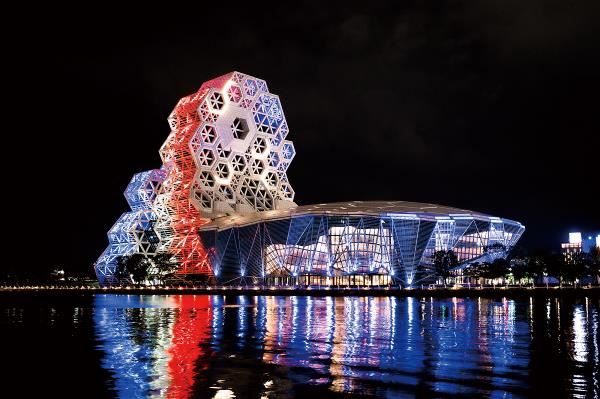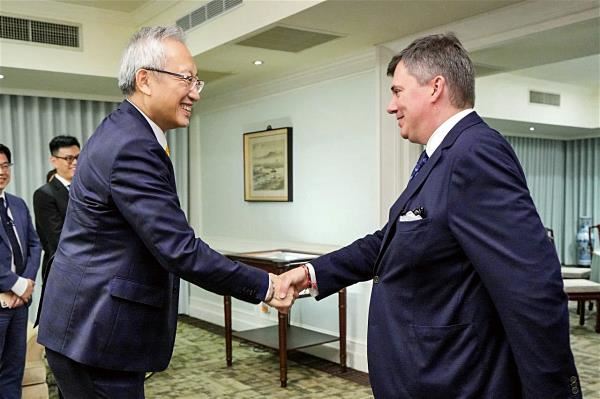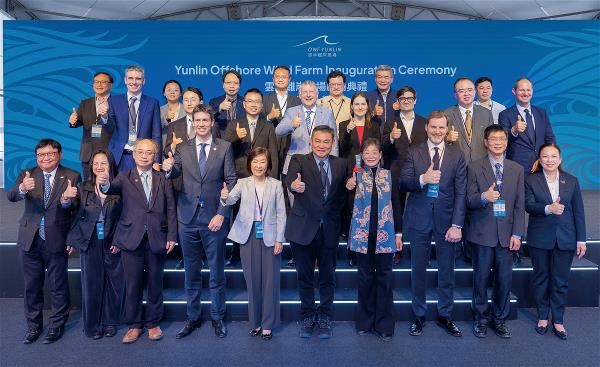2025-6-20
(Courtesy of Taiwan Panorama June 2025)
Cathy Teng /photo courtesy of BFT /tr. by Phil Newell
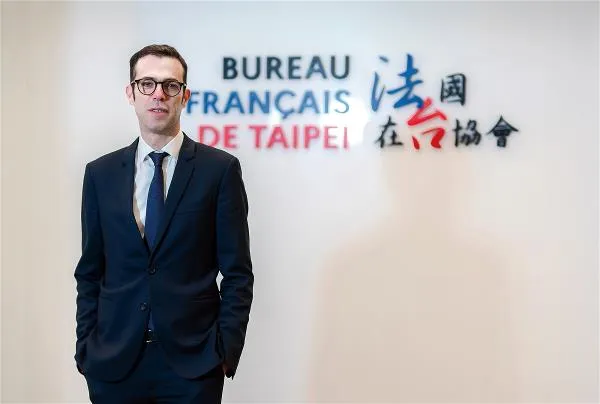
Franck Paris, director of the Bureau Français de Taipei (BFT—the French Office in Taipei), arrived in Taiwan to take up his post in August of 2023. His Chinese name, Long Ye, is very cool and classy. “Long,” which means “dragon,” was chosen because he was born in a Year of the Dragon according to the Chinese zodiac, while “Ye,” meaning “blazing fire,” reflects the fact that his family name, Paris, is also the name of the French capital, which is known as the City of Light.
Franck Paris was formerly a foreign policy advisor to French President Emmanuel Macron and specialized in African affairs for many years, becoming known as “Mr. Africa.” Having made the transition from Africa to the Asian land of Taiwan, he tells us: “I think the future of Taiwan will have a lot of influence on the course of global geopolitics.”
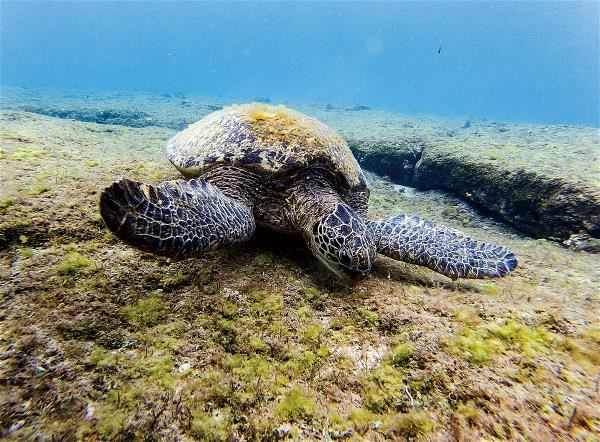
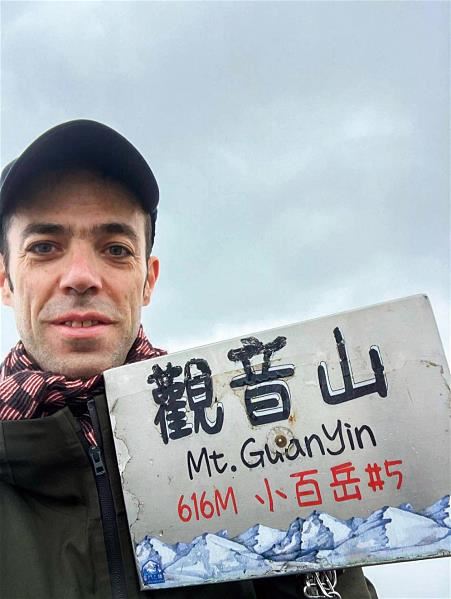
Requesting assignment to Taiwan
Without any previous experience in Asia, why was Director Paris selected to come to Taiwan? His answer is surprising: He explains that he volunteered to be assigned here. “I think Taiwan is a real laboratory of global geopolitics.” Taiwan currently faces many geopolitical challenges, making it “a very unique place with a very unique experience of democracy in an environment of high pressure from competitors to democracy.”
He admits that because he was very busy with work he had no time to prepare much before coming to Taiwan, lacking even the time to study Mandarin Chinese. However, he is friends with Benoît Guidée, a former director of the BFT, and when he mentioned to Guidée that he was being posted to Taiwan, the latter’s first words were: “You are so lucky!” It was with this positive encouragement in his mind that Paris landed in Taiwan.
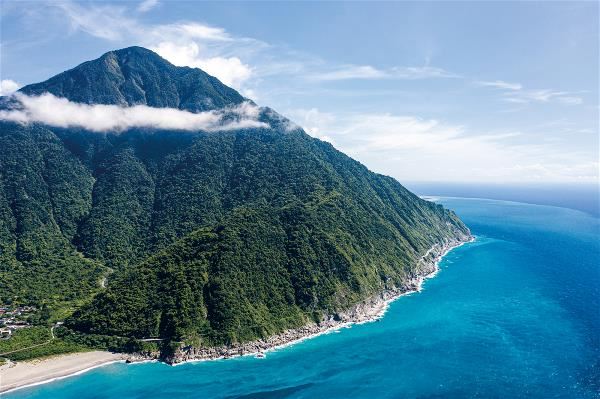
Experience astonishing Taiwan
Paris, who has visited many places in Taiwan over the past two years, says that the island’s East Coast is the most memorable place for him. His family comes from Corsica, which he had previously thought was the only place in the world with towering mountains so close to the deep blue sea. But when he saw the East Coast of Taiwan, with its majestic scenery of tall mountains rising up beside the broad ocean, he found it very similar to his native land, except that here the mountains are adorned with tropical plants. This made a deep impression on him.
Another thing that has amazed him about Taiwan is how seamless the transition is between the convenience of Taipei and closeness to nature. In Taiwan, he notes, one can travel from the “concrete jungle” to a real jungle in less than an hour. This is one of the most unique experiences that Taiwan has to offer.
He has also swum with sea turtles in Xiaoliuqiu, getting to within ten centimeters of them. The sight of them moving gracefully through the water reinforced his appreciation for the beauty of Taiwan’s natural environment.
Paris has joined a soccer team in Taiwan, which has given him a new perspective on the cultural differences between Taiwan and France. “In France, when you play soccer you keep arguing with the referee. That’s not good, but this is part of the game. However, in Taiwan, no one challenges the referee.” This experience has enabled him to learn about the respect Taiwanese people have for rules and to better understand the relatively harmonious atmosphere of Taiwanese society.
What aspects of Taiwan does he recommend to friends visiting from France? His top choice is “the people.” “When I have French visitors coming, I think the first thing is that I try to introduce them to Taiwanese friends I have met here, because I think the most interesting thing for them is to discover the Taiwanese mentality and hospitality.”
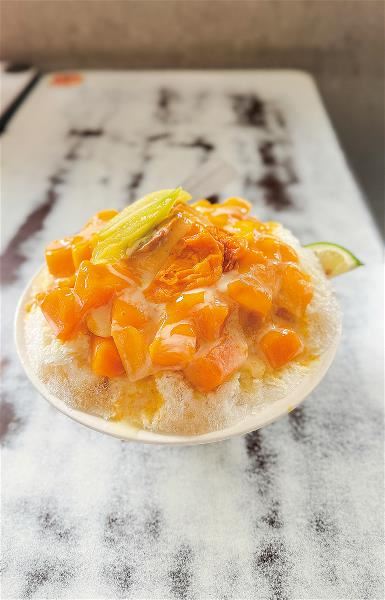
A shared love of fine food
Paris also shares his observations of Taiwanese and French culture. He states: “As for commonalities, I think that there is a passion for gastronomy and for food. We both put it as a top priority.” He adds that Taiwan and France are perhaps the only two places in the world whose people can talk about food all day, and in this respect the Taiwanese can compete with the French.
Paris’ favorite Taiwanese foods are mangoes and xiaolongbao (soup dumplings). He has been especially struck by the novelty and diversity of food on the island. During our interview, he shares that when traveling in Taiwan, particularly when deep in the countryside or in indigenous communities, he has discovered many unusual plants and vegetables that one rarely comes across in Europe. “It’s very difficult now in the world to find things that you never knew before, because there’s so much standardization across the world now.” But Taiwan still has delightful surprises of this kind in store.
But does he dare to eat Taiwan’s famous “stinky tofu”? He replies: “Stinky tofu is fine, but not on an everyday basis!”
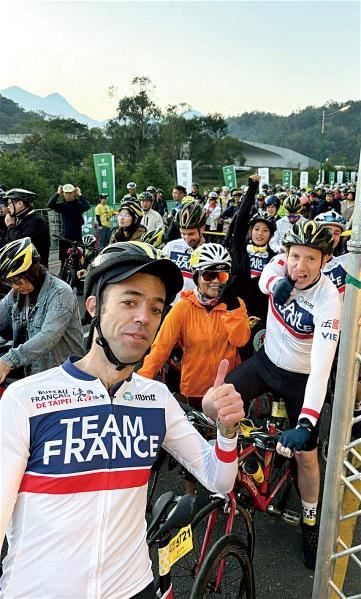
Transformation of diplomatic work
When he was a student, Paris joined the European Union’s Erasmus Programme. He was among the first group of students to study abroad under the program, and his experiences in the UK and Australia broadened his perspective and elevated his aspirations. It was then that he committed to becoming a diplomat.
Early in his diplomatic career he was dispatched to an African country that was in a state of war, where he was responsible for maintaining a dialogue with all the contesting forces. Later he worked for over four years in Brussels as part of the French delegation to the European Union, where an important part of his work was discussing the possibilities for forming a European army.
As diplomatic practice has evolved, he explains, his job has been transformed. While in the past his focus was mostly on intergovernmental relations, he now has to place more emphasis on linkages between societies and ways to establish broader connections in various fields. Paris says that in Taiwan he spends nearly half his time organizing various kinds of events, such as the French Festival, Francophonie à Taïwan, and France’s participation in the Taipei International Book Exhibition. Recently the “L’Étape by Tour de France” international bicycle race series (a.k.a. the Tour de France Challenge) came to Taiwan for the first time, so he put on a Team France jersey, and riding his own bike, strove to finish the race “so as to not be ridiculous,” he confesses with a laugh.
Paris has also been interviewed on TV. He says this is a difficult experience for a diplomat because they are not trained for that. Indeed, every phase of his career has brought new experiences, which makes his job extremely interesting. “I really enjoy this job, because it changes every day, and you learn a lot, you keep learning.”
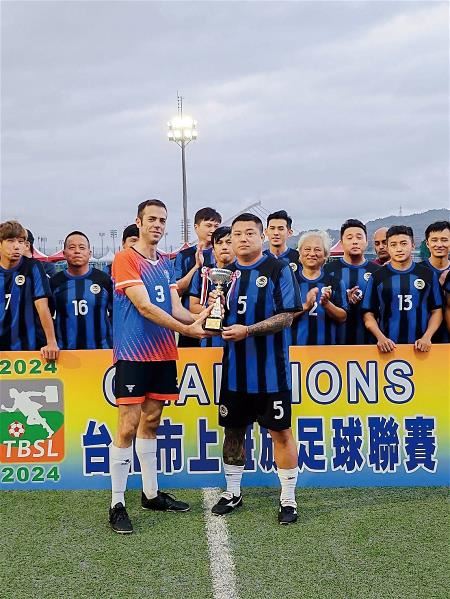
Evolving Taiwan–France interactions
When you mention France to people in Taiwan, almost everyone can tell you about some personal connection with that nation. In terms of films, people think of the Cannes Film Festival and Taiwanese directors including Hou Hsiao-hsien, Edward Yang, and Tsai Ming-liang who have had their moments of glory there. As for literature, everybody knows the story of the fox and the rose from The Little Prince, virtually all cultured young people read Balzac, and the French bookstore Librairie Le Pigeonnier has been in operation for more than 20 years. The new generation, meanwhile, can better understand the cultures of Taiwan and France and get greater familiarity with France through YouTubers such as Anna, Rémy Gils, Ku, Louis, and François Devatine.
As for cultural connections, the annual Nuit Blanche arts festival in Taipei is inspired by the all-night arts festival of the same name held in the city of Paris. And when Paris hosted the 2024 Summer Olympics, Taiwan not only sent a team of athletes to compete, it also participated actively in the Cultural Olympiad, which was held in coordination with the Games.
In academics, the France–Taiwan Scientific Grand Prize, awarded by Taiwan’s National Science and Technology Council and France’s Academy of Sciences, has been given out 26 times thus far, while the Franco-Taiwanese Cultural Foundation Prizes have been presented every year since 1996 by Taiwan’s Ministry of Culture and France’s Academy of Moral and Political Sciences. Through the achievements of the winners, interactions between France and Taiwan have been enhanced and Taiwan has been able to find greater international understanding and support.
Politically, over the past five years, virtually every year delegations of French officials have visited Taiwan, highlighting the friendship and cooperation between the two sides. Franck Paris has noticed that in recent years a growing number of Taiwanese officials have visited Europe, and many officials formerly stationed in Europe have occupied strategic decision-making positions after returning home. “That’s a very important signal. I think there is a unique window of opportunity now to raise the profile of the relationship between Taiwan and Europe.”
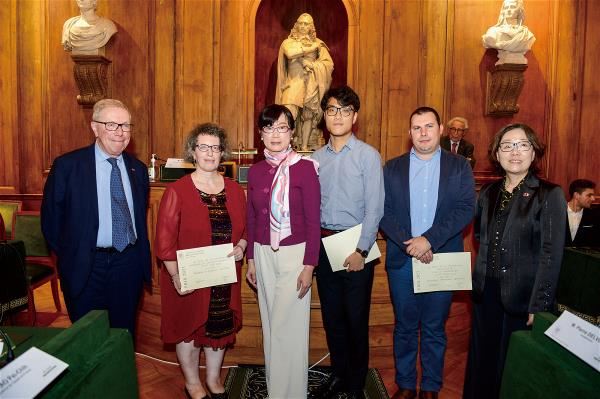
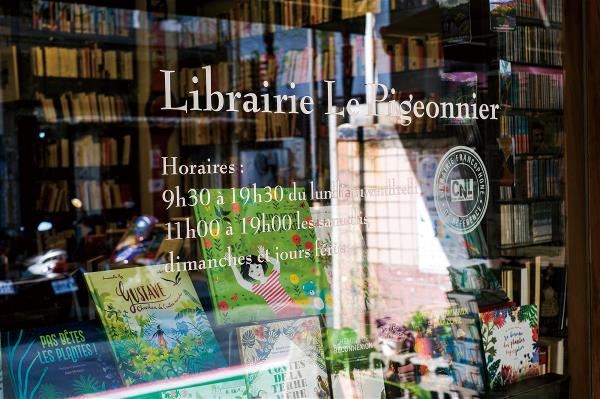
Shared values, complementary economies
Paris also talks about the challenges he faces in Taiwan. Taiwanese he has met have told him how great it was to travel to France for vacations, but virtually no one has spoken to him about going there to engage with French tech companies. “I want to rebalance that perception.”
France has cutting-edge technology, top-tier universities, and leading artificial intelligence companies, as well as a powerful semiconductor industry. “If you look at the economies of France and Taiwan, they are highly complementary.” Taiwan has unique advantages in the industrial sector, while France has strong potential for innovation, with 30 “unicorn” companies (privately-held startups valued at US$1 billion or more). By strengthening the complementarity between our two economies, he says, we can unlock even greater potential for mutually beneficial trade.
As for tangible achievements, Paris points to the example of the Taiwanese enterprise ProLogium, which is building a gigafactory at Dunkirk in northern France to mass-produce solid-state lithium batteries. This will make Taiwan into a major player in the European electric vehicle industry. Moreover, several major French companies have come to Taiwan to invest in sustainable energy, notably TotalEnergies and a number of French banks including BNP Paribas. In fact, France has become an important partner for Taiwan in the development of green and renewable energy.
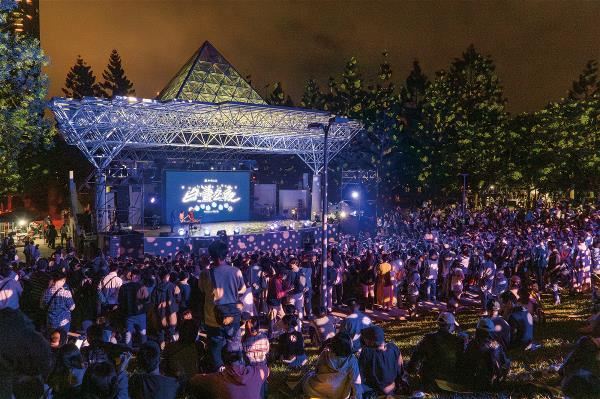
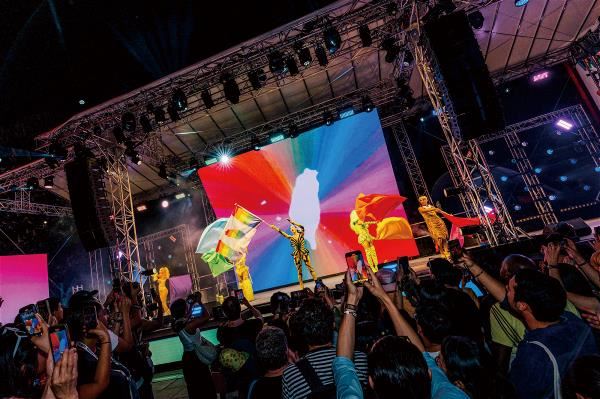
What’s unique about Taiwan
During our interview, Paris repeatedly mentions “geopolitics” and emphasizes that people should think about the big picture. This is a crucial perspective for any professional diplomat. He stresses: “I think the history of Taiwan and the future of Taiwan will have a lot of influence on the course of global geopolitics.”
“I will give you a very concrete example,” he adds. “Russia is interfering a lot in Africa, and they are putting a lot of pressure on African countries. The main narrative of Russia is to say, democracy is a European and American thing, it has nothing to do with your own country.” But Paris rejects this narrative, saying: “No, democracy is not just a Western thing, look at Taiwan!” Taiwan is a vibrant democracy and it is not a Western creation—it’s an Asian democracy, with a democratic system rooted in Asia.
“If Taiwan loses its democratic DNA, it will be difficult for us to find other non-Western examples of democracy in the world.” This is an understanding shared by many of Taiwan’s allies. “That’s why I was happy to come here, to better understand the dynamics here, and also to help Taiwanese democracy to succeed.”
